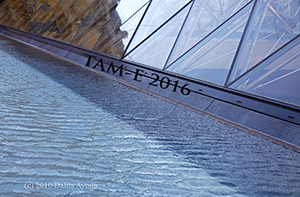Evidentiality is a linguistic category through which the mode of access to information is expressed. While it is a fully-fledged grammatical category in many of the world's languages, such as Tibetan, it is not (yet) fully grammaticalized in most Indo-European languages, such as English or French (Aikhenvald 2004, Tournadre & LaPolla 2014). However, it is a universal semantic domain that can be expressed in these languages by perception verbs (see, hear), cognition verbs (guess, suppose), copula (look, sound), modal verbs (must, should) or adverbs (apparently) (Squartini 2007, Cornillie 2007, Mélac 2014). As stated by Giacalone-Ramat (1992), the study of L2 acquisition offers a window on the processes which trigger the grammaticalisation of a given concept, as linguistic change is both a matter of time, and of a sum of individual choices spreading through a linguistic community. As learner languages are evolutive systems (Giacobbe 1992), they offer the researcher the possibility to observe over a very short period of time some of the linguistic changes which are at work in grammaticalisation. Our study will focus on oral narratives based on the retelling of a silent cartoon, a task which includes direct perception and should therefore elicit evidential markers. Our database includes 10 English and 10 French native speakers (control groups), 15 English learners of French and 15 French learners of English, at 3 proficiency levels (5 lower intermediate, 5 upper intermediate, 5 advanced). Our first results indicate that while evidential markers are quite rare in our database, and include mostly perception and cognition verbs (see, guess, imagine), they are principally used by French learners of English, with advanced learners using them most frequently. The results give a new perspective on the differences of the English and French systems, as well as the asymmetrical acquisition of one system or the other.
- Autre

 PDF version
PDF version

